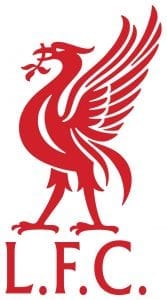Interest in goalball continues to grow, with the summer games in Tokyo having a big impact. The 2020 Paralympics helped to raise the profile the of sport and inspire many in the blind and VI community to get involved. We spoke to Tom Dobson, competitions and development officer at Goalball UK, to get some practical advice on starting a new goalball team.
Listen to the interview below or read on for a shorter version.
What is goalball?
Goalball the world’s most popular team sport for the blind and visually impaired communities.
It’s one of the only sports that doesn’t have a sighted equivalent and that makes it very special for those that play it.
However fully sighted players can play domestically but for international IBSA-sanctioned tournaments the players must have a visual impairment classification of B1, B2, or B3 level.
To ensure a level playing field all players wear black-out masks, at the Tokyo Paralympics these were supplied by Goalfix.
Goalball teams in the UK
Goalball in the UK is growing steadily with new goalball teams starting up every year. There are currently over 25 goalball clubs across the UK, from Glasgow, in Scotland, right down to the south in Winchester and also in Northern Ireland.
The national governing body Goalball UK deliver over 25 competition days year for these teams. The season runs from September until July. There are local leagues for different skill levels and then a final national tournament (sponsored by Goalfix) for those who qualify.
It’s a format that Goalball UK are trying to promote and grow.
“We have really tried to have as many clubs within the UK as possible. Our grand target one in each county.” Says Tom.
This summer’s games has helped with that.
“Over the last couple of months, we’ve had a lot of interest from people, obviously watching the Paralympics…. We get numerous of emails asking where’s my local Goalball team?”
Of course there isn’t always a club nearby but part of Tom’s job is to help people set up new goalball teams.
Setting up a new goalball team
So how do you go about setting up a new goalball team?
There are four key areas to this:
- People
- Venue
- Funding
- Equipment
- Stakeholders
1. People
Obviously the most important thing is to have enough players. There is three on the court at any one time but it’s important to have a decent size squad. This is so that you can have some players on standby in case of injury, or just give you the ability to change players during the game (due to fatigue or injury). It’s a very physically demanding sport so only having three players isn’t enough.
But outside the court you’ll also need people to help. This might include a coach, someone to help out with your club accounts (and fundraising – more on that below) and maybe someone to help arrange practice and venues. Having dedicated and enthusiastic volunteers is a must. Players can fulfil some of these roles as well.
“In some clubs, we have just one person that that’s a bit of jack of all trades, that does a bit of everything. Whereas in another club, where we have the one person, there’s a little bit of everything, but then support underneath that.” Tom tells us.
The coaching role is vital. As Tom says, “The key person for the club is the coach, someone that understands what the sport is, so that they can perhaps referee the game [as well as take training sessions].”
2. Venue
The training and match venue is also important and there are a few things to think about:
1) indoors – it’s important that the court is indoors – outdoor pitches that could get slippery or noisy aren’t much use.
2) the flooring – its important to try and find a wooden or Terraflex (vynil) floor. Many older sports halls have concrete flooring which can be hard for players when they dive and are unsuitable.
3) the acoustics – some venues simply aren’t good enough due to poor acoustics. A big problem is often outside noise, maybe from other sports taking place at the same time, that make it impossible for players to hear the ball at critical moments. Quite please!
4) taping and string – you’ll need to find a venue that is happy with you adding string and tape to the floor. It’s good to be clear with the venue that you’ll need to do this and that you’ll be diving about on their floor. It’s good to be upfront with the venue about what they are letting themselves in for!
Its also important to look outside of regular sports halls to find a venue. You might find a local youth club, community centre or church hall works can do the job better than a local sports centre.
3. Funding
Perhaps the trickiest thing to find is funding.
In the UK GoalballUK can help with a small amount of seed funding but after that your own your own. That’s why it’s important to have dedicated volunteers around to help. It’s also why it’s important to engage stakeholders (more on that below) as they may be able to give you some funding or point you in the direction of other funders. They may also be able to help with payment in kind by donating old equipment or other resources.
Tom told us that, “The best funding for clubs is the Sport England small grants fund. This is for a lot of money and takes a lot of work, so this is better for more established clubs.
Smaller pots are available for clubs but these are on a regional level, some are through sight charities and some are through active partnerships.
We try and get all clubs (new and old) to speak with a Goalball UK [and other stakeholders] to see what support we can offer with any bids.”
Funding is a must to help procure the equipment you’ll need.
4. Equipment
Eyeshades
Whilst new players often use soft ‘blindfolds’ in training at competition level all players must wear total blackout eyeshades.
Goalfix provide the most advanced eyeshades in the world. Our Eclipse goalball eyeshade was the first to be endorsed by the International Blind Sports Association (IBSA). It was used by all Goalball teams competing at the 2016 and 2020 Paralympic Games.
Balls
The goalball ball is made from heavyweight rubber and contains bells to allow players to hear it and track its movements.
The Goalfix match ball has three metal bells inside which can be heard through eight holes in the rubber.
Softer and lighter goalballs are recommended for younger players and/or informal sessions.
Goals
Specialist goals, 9m wide and 1.3m high, are needed.
Goalfix Sports is the Goalball UK recommended supplier of Goalball goals. We make three models of lightweight freestanding goals, all to IBSA international standards. They are designed to be highly portable and easy-to-assemble.
Court Markings (tape and string)
Whichever venue you use you are likely to need to create your own court markings. This is done using string held down by tape. Regulation string is 3mm thick but any kind of string, cord or thin plastic washing line can be used for informal sessions.
The normal width of court marking tape is 50mm. It can be any colour. The key thing is that it provides a good contrast to the playing surface to enable referees to be able to clearly distinguish the lines.
Goalball UK advises to test the tape first on the playing surface you are planning to use to make sure it does not bring up the varnish or the marked lines that are already there.
Player Protection
As you’ll probably know goalball is a very physically demanding sport, it involves throwing yourself to the ground in front of a heavy ball. Therefore many players opt to use some type of protection.
This could include:
- Elbow & Knee Padding
- Hip Padding
- Chest Protection (for female players)
- Groin Protection (for male players)
- Head Protection: Goalfix supplies the halo360 Head Guard to protect against head impact in all blind contact sports.
5. Stakeholders
As we said above contacting local stakeholders will be really important. This could help with funding and resources but also with other things.
There are many local groups delivering services for the blind and VI community everyday and they’ll be able to give you help, advice and some moral support.
Working with local groups, such as the RNIB or a local school, is a great way of attracting new players and additional support.
Local groups are usually happy to promote training sessions and call out for volunteers through their existing networks, this in turn will help you to build your own networks.
The process of building a goalball team
Tom describes the elements above as “different jigsaw pieces that we have to put together.”
Their hope is by putting this jigsaw together they can help the team thrive rather than just survive.
The process that Goalball UK follow aims to set teams up for the long term by embedding them in their community.
The process can take anything up to 3 years but Tom believes the methodical process is better than having a club fail or people getting burnt out and the process is usually around 1 year.
“It’s small steps, try not to run before you can walk. Take it slow and steady. And make sure that the four key ingredients are there. And then you can then start to develop further.”
They like having all the elements in place before anyone throws a ball. As Tom explains, “Because what we don’t like to do is, have the interest, then do the taster session. We may get 20 people. But then we don’t want the door to shut back on them because we might not have a coach, or we might not have the funding in place to kind of keep it going long term.”
To help with the process Goalball UK have a minimum framework. They work with new clubs to meet these requirements. This includes 15 points that teams need to achieve to help them thrive.
This includes everything from a minimum number of training sessions per year to ensuring they have proper safeguarding procedures in place.
It’s something that Tom works with people week in week out as part of his role. “As goalball UK part of the affiliation package, we will sit down with each club and take them through each of the points and see how can we support them through that.”
One piece of advice for a new team
The most important thing is perhaps to try and get involved.
“Just give it a go and try and speak to as many people as possible,” say Tom and that includes Goalball UK. “If anyone’s interested, just get in touch. And we can support on that pathway to moving things forward.”
Goalfix supplies a full range of top quality goalball equipment for players, teams and tournaments.
Discover more about goalball in our introductory guide to the sport.
Listen to our interviews with some of the worlds top goalball players and coaches:
















 £
£
 €
€
 $
$